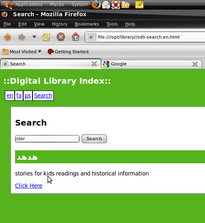Our goal here is to dramatically and quickly improve educational outcomes. Unfortunately that process doesn't happen magically by itself. There's a myriad of cultural and reality on the ground matters that need to be taken care of. We need to understand concretely the problem we are attempting to solve and how our intervention is going to lead to solving it.
So the reality on the ground in most Afghan schools here is that students and teachers really don't have enough time in class. Typically 30 mins for lessons that they would really need one hour for. Teachers often have to find additional hours to do other jobs to make ends meet.
Going back to that lack of time, sometimes capacity difficulties, they often can't provide feedback to student work, homework, etc. Without feedback, hints, etc. which parents and teachers can't provide learning results naturally suffer. Finally against this backdrop providing opportunities for group work / soft skills is tricky to say the least.
Creating a blended learning experience can effectively increase the amount of time that children have for learning. Identify which parts can be engaging self study through mini games, video, audio and quizzes. Provide self test reasonably framed not as tempting as flipping the book pages quizzes with hints and feedback on incorrect answers to provide the feedback to learning that children need. We can then use some of that freed time to construct a window for projects and further learning. But to get there we have to round off all the corners and engage all stakeholders.

XO digital library index in Afghanistan
This is what we're engaging now with three subjects: Science, Maths and Religious Studies. Creating complete interactive text books with the interactive tools (gathered from Java sites, scratch, Karma, what we developed) built through ExeLearning so that they can run offline anywhere anytime (we're coding some improvements to add Scratch, Iframe, and HTML 5 support).
In Afghanistan we are fortunate that there is a strong cultural emphasis placed on learning, and great respect for teachers in society, based on Islamic values and the importance the Koran places upon learning and education. On the other hand it means that we need to remember the position of the teacher cannot be undermined, and we need to deal with things like what to do when the kids ask questions that the teacher doesn't know the answer to.
Whatever pedagogical model might be applied; in most cultures, and particularly in cultures such as S. Asia where teacher prestige is vital, the most important bottom line critical success factor is teacher confidence. If the teachers are confident with the new technology, then results will flow, if not, we're asking for disaster. No - explaining binary code does not really have a practical use day to day for the XO laptop. But it did improve teacher confidence.
We did that in a number of ways. In addition to the normal teacher training (5-6 days) we also identified champion teachers who were more enthusiastic (Roughly 3 out of 10 teachers). We then did another 5-6 days with them. They then become the go to people in the school. Then find a local computer science student or such and have them visit. Even if computer science possibly is not the most relevant subject in the process, it is the part that addresses insecurities more often than not, and it creates a social web of go to people, which is the same way that other challenges are typically solved here.
We need to remember that connectivity ain't cheap. Not at all - satellite bandwidth is extremely expensive. Typically satellite based dedicated bandwidth runs at about $3,000/month for 1 Mbps. Which is why we base pretty much everything on using the local school server and we run our own digital library (built using our own Simple Digital Library Index). We copy those websites (like wikipedia snapshots, language websites, health contents, etc) that we want for reference onto the school network using mirroring tools. Also avoids any cultural sensitivity problems.
Finally we need to consider that we're still learning. So we need to rigorously assess what we're doing, we need to engage stakeholders, we need to get their feedback, run ideas by them, engage teachers, children and parents in the whole process. We find a very positive reception from children (of course), teachers, and just a few percent of parents complaining that their children were a bit too interested in their XO. We found around a 22% increase in standardized testing results over 2.5 months after introducing the laptops. We have indications. Soon it will be time to find more definitive answers.
The XO thus can be the key to unlocking amazing possibilities and improving education, but to realize the potential of the investment and achieve our objective of massively improving learning outcomes we have to work with the culture, with stakeholders, and deliver without the need for massive recurring bandwidth costs the educational content that children and teachers need.
Subscribe to OLPC Afghanistan updates via RSS Feed, Email, Twitter, or Facebook


